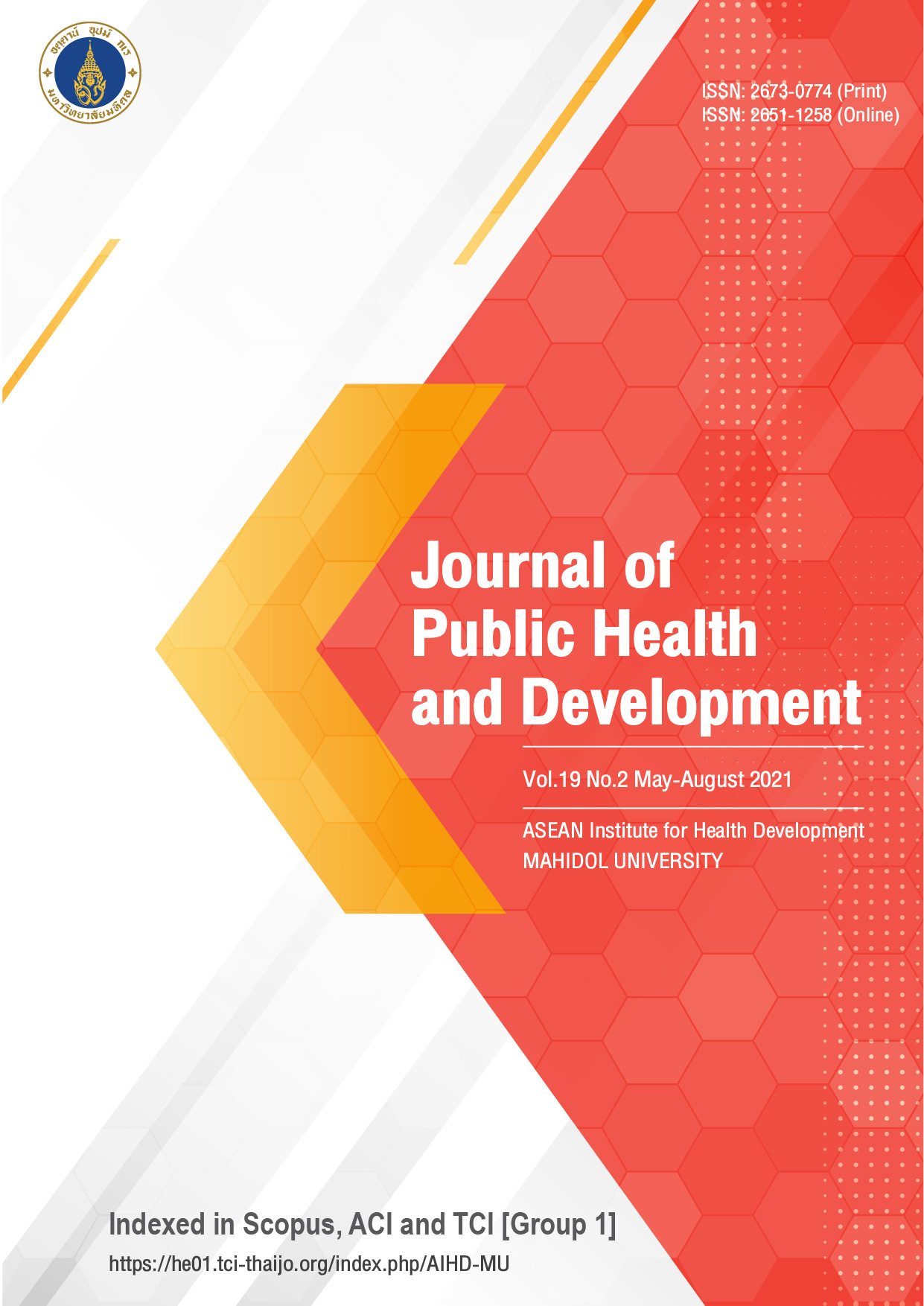Biomedical waste management and public health risks during COVID-19: Scenario of COVID diagnosis laboratories
Main Article Content
Abstract
The unprecedented outbreak of COVID-19 has significantly increased the volume of biomedical waste while the number of waste management workers halved in the state of lockdown in Bangladesh. The improper management of biomedical waste might facilitate the spreading of COVID-19 as SARS-COV-2 could survive on these wastes for variable durations. In this article, we presented the impact of COVID-19 on biomedical waste generation and management in Bangladesh and the waste disposal practices in laboratories. We also presented the practice of waste management in two COVID testing laboratories in Bangladesh. About 109 laboratories are working on the detection of COVID-19 through Real-time Reverse Transcriptase PCR. In April 2020, at least 14,500 tons of medical wastes were produced throughout the country which was almost double the amount produced previously (7756.3 tons per month earlier). COVID testing laboratories used biohazard bags for disposing of wastes and autoclaved these waste-filled bags before releasing them from the laboratory. These bagged wastes are collected by the City Corporation (local city authority) workers for final disposal. However, proper management of excess volumes of biomedical waste requires multidisciplinary collaboration of different stakeholders including the government, hospital administration, laboratory workers, researchers, and policymakers.
Article Details

This work is licensed under a Creative Commons Attribution-NonCommercial-NoDerivatives 4.0 International License.
References
WHO. WHO Director-General’s remarks at the media briefing on 2019-nCoV on 11 February 2020 [Internet]. 2020 [cited 2020 October 28]. Avialable from: https://www. who.int/dg/speeches/detail/who-director-general-s-remarks-at-the-media-briefing-on-2019-ncov-on-11-february-2020
Institute of epidemiology disease control and research (IEDCR). Bangladesh coronavirus (COVID-19) update [Internet]. 2020 [cited 2020 October 24]. Avialable from: http://old.iedcr.gov.bd/
Palanisamy Pasupathi, Sivaraman Sindhu , Babu Shankar Ponnusha AA. Biomedical waste management for health care industry. Int J Biol Med Res [Internet]. 2011;2(1):472-486 [2020 October 25]. Avialable from: https:// www.biomedscidirect.com/147/biomedical_waste_management_for_health_care_industry/articlescategories
UNEP. Waste Management during the COVID-19 Pandemic: from response to recovery | UNEP - UN Environment Programme [Internet]. 2020 [cited 2020 December 16]. Avialable from: https://www.unenvironment.org/resources/report/waste-management-during-covid-19-pandemic-response-recovery
DGHS. secondary and tertiary healthcare [Internet]. 2011[2020 November 3]. Avialable from: https:// www.dghs.gov.bd/licts_file/images/Health_Bulletin/HB2012_CH/HB2012_CH5_Senondary-tertiary-HCare.pdf
DGHS. Health Bulletin 2019 [Internet]. 2020 [2020 December 20]. Avialable from: https://dghs.gov.bd/ images/docs/Publicaations/Health Bulletin 2019 Print Version (2)-Final.pdf
Nuralam HM, Xiao-lan Z, Dubey BK, Wen-Chuan D. Healthcare Waste Management Practices in Bangladesh: A Case Study in Dhaka City, Bangladesh. 2017. doi:10.5281/ ZENODO.1131077
World Health Organization. Regional Office for South-East Asia. World Health House Indraprastha Estate SEA-EH-593 Report on Health-Care Waste Management Status in Countries of the South-East Asia Region [Internet].; 2017. Accessed December 22, 2020. https://apps.who. int/iris/handle/10665/258761
Syed EH, Mutahara M, Rahman M. Medical Waste Management (MWM) in Dhaka, Bangladesh. Home Health Care Manag Pract. 2012;24(3):140-145. doi:10.1177/1084822311425235
World Health Organization (WHO). Rational Use of Personal Protective Equipment for Coronavirus Disease 2019 (COVID-19) [Internet].; 2020. Accessed October 25, 2020. https://www.who.int/csr/resources/publications/putontakeoff
Saadat S, Rawtani D, Hussain CM. Environmental perspective of COVID-19. Sci Total Environ. 2020;728:138870. doi:10.1016/j.scitotenv.2020.138870
Dhaka Tribune. World Environment Day: Medical waste prolonging Covid-19, threatening biodiversity | Dhaka Tribune [Internet]. 2020. Accessed October 24, 2020. https://www. dhakatribune.com/bangladesh/environment/2020/06/04/world-environment-day-friday-medical-waste-prolonging-covid-19-and-threatening-biodiversity
The Business Standard. 206.2 tonnes of Covid-19 wastes produced in Dhaka a day: Study | The Business Standard [Internet].https://tbsnews.net/coronavirus-chronicle/covid-19-bangladesh/ 206218-tonnes-covid-19-wastes-produced-dhaka-day-study. Published 2020. Accessed February 12, 2021.
Ramteke S, Sahu BL. Novel coronavirus disease 2019 (COVID-19) pandemic: considerations for the biomedical waste sector in India. Case Stud Chem Environ Eng [Internet]. Published online August 1, 2020:100029. doi:10.1016/j.cscee.2020.100029
Singh N, Tang Y, Ogunseitan OA. Environmentally Sustainable Management of Used Personal Protective Equipment. Environ Sci Technol [Internet]. 2020;54(14):8500-8502. doi:10.1021/acs.est.0c03022
ACR plus. Municipal waste management and covid-19 [Internet]. 2020 [2020 December 9]. Avialable from: https://www.acrplus.org/en/ municipal-waste-management-covid-19
Celitron. Biomedical waste types, definition and disposal management [Internet]. 2020 [2020 December 16]. Avialable from: https://celitron.com/en/types-of-biomedical-waste-definition
Center for disease control and prevention. Guidelines for Environmental Infection Control in Health-Care Facilities Recommendations of CDC and the Healthcare Infection Control Practices Advisory Committee (HICPAC) [Internet].; 2019 [2020 October 24]. Avialable from: https://www.cdc. gov/infectioncontrol/pdf/guidelines/environmental-guidelines-P.pdf
Richardson J, Barkley WE, Richmond DJ, Mckinney RW. Biosafety in Microbiological and Biomedical Laboratories.
Sarkodie SA, Owusu PA. Impact of COVID-19 pandemic on waste management. Environ Dev Sustain 2020:1-10. doi:10.1007/s10668-020-00956-y
WHO. Health-care waste [Internet]. 2018 [cited 2020 December 9]. Avialable from: https://www.who.int /news-room/fact-sheets/detail/health-care-waste
Zand AD, Heir AV. Environmental impacts of new Coronavirus outbreak in Iran with an emphasis on waste management sector. J Mater Cycles Waste Manag. 2021;23(1):240-247. doi:10.1007/s10163-020-01123-1
MOHFW. MINISTRY OF HEALTH AND FAMILY WELFARE (MOHFW) Environmental Assessment and Action Plan For the Health, Population and Nutrition Sector Development Program (HPNSDP) E2606 V1 rev [Internet]. 2011 [2020 October 25]. Avialable from: http://documents1.worldbank.org/curated/en/813821468007227554/pdf/E26060V10REVIS10Mar0disclosable0ver.pdf
Anadolu Agency. Doctors plight mounting in Bangladesh amid pandemic [Internet]. 2020 [2020 October 24]. Avialable from: https://www.aa.com.tr/en/asia-pacific/ doctors-plight-mounting-in-bangladesh-amid-pandemic/1929449
Directorate General of Health Services (DGHS) G of B. List of RT-PCR laboratories [Internet]. 2020 [2020 October 24]. Avialable from: https://dghs.gov.bd/images/docs/Notice/rt_pcr_lab.pdf
WHO. Water, sanitation, hygiene, and waste management for SARS-CoV-2, the virus that causes COVID-19 [Internet]. 2020 [2020 October 28]. Avialable from: https://www.who.int/ publications/i/item/WHO-2019-nCoV-IPC-WASH-2020.4


